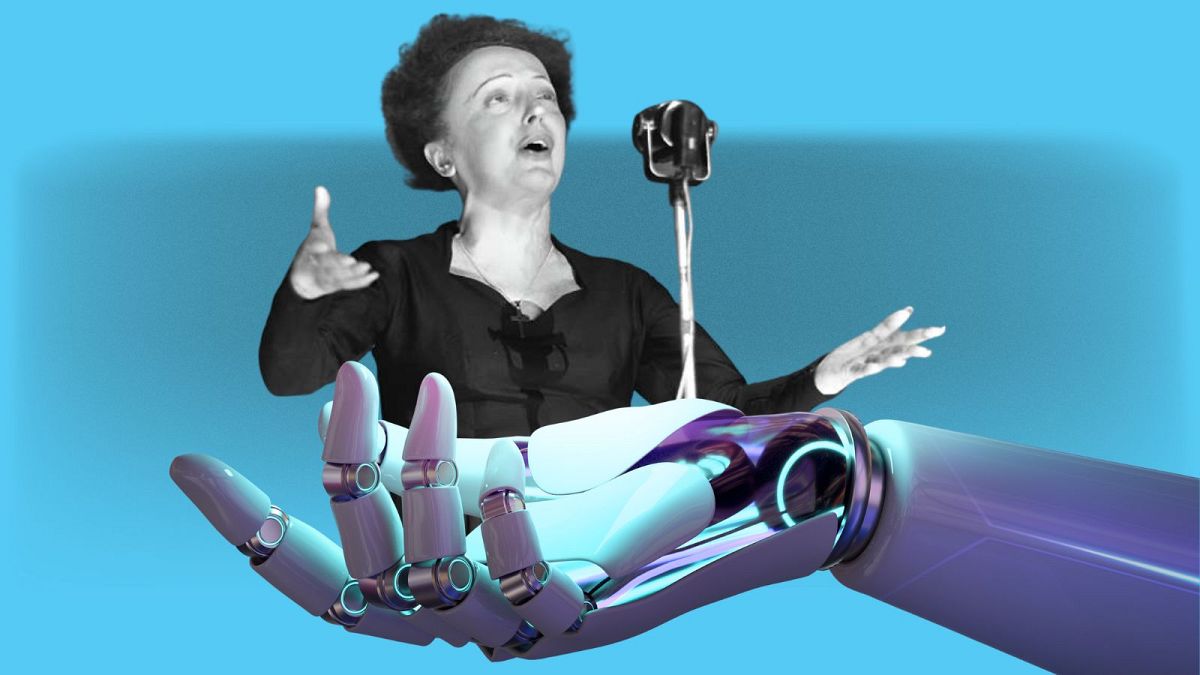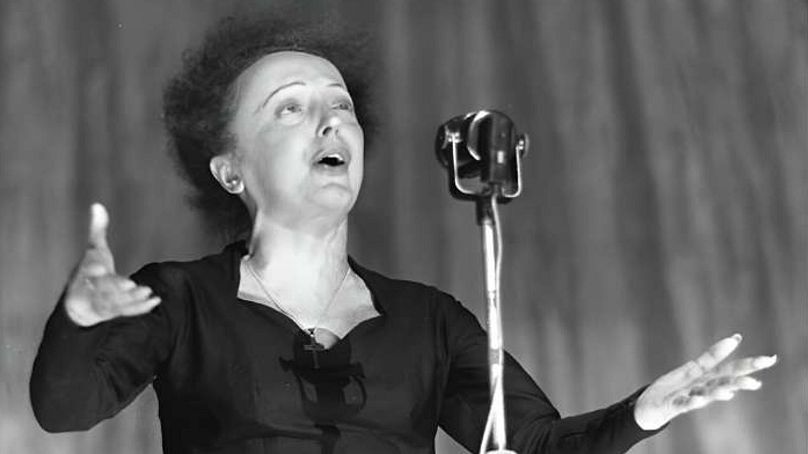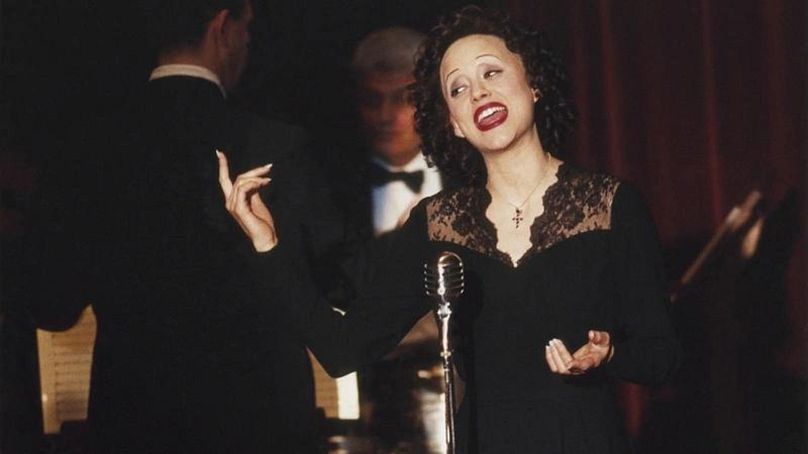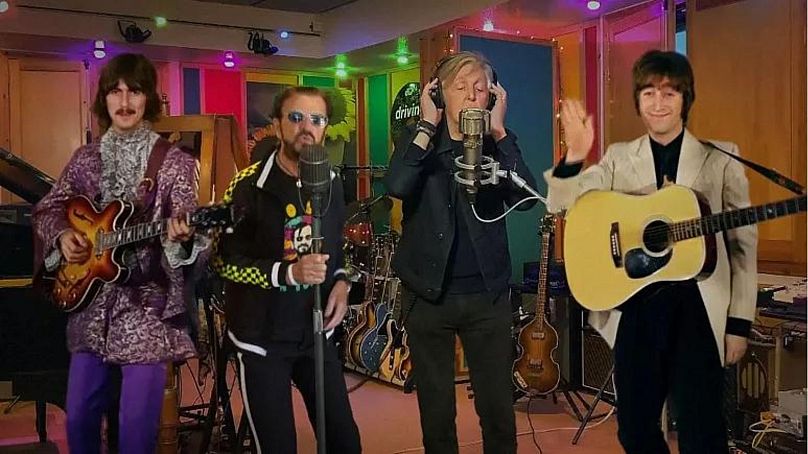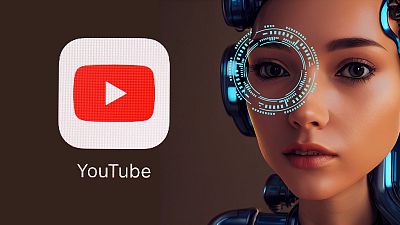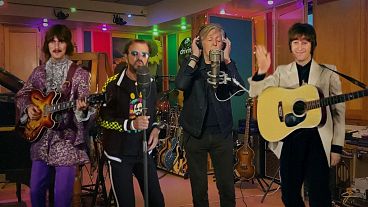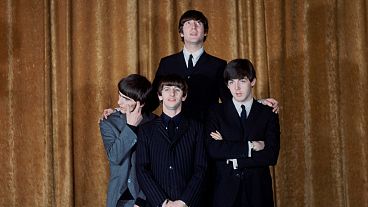A new biopic on the life of Édith Piaf will use artificial intelligence so that the French music legend narrates her own story. Are you ready for 'La Vie en Robots'?
The estate of Édith Piaf has partnered with Warner Music Entertainment and the production company Seriously Happy for an upcoming biopic that’ll use AI technology to recreate the late singer’s voice.
The singer of French classics 'La Vie en Rose', 'La Foule', 'Hymne À L’Amour', and 'Non, je ne regrette rien' can’t escape the clutches of AI, which will be fed hundreds of voice and image clips to re-create Piaf’s unique style and "further enhance the authenticity and emotional impact of her story".
The unveiling of the "innovative and revolutionary technological project using AI to re-create her voice and image", the statement said, comes 60 years after Piaf's death. The French icon died on 10 October 1963 due to complications related to liver cancer.
The film, tentatively titled Édith, is "in the final phase of development", sources close to Warner Music France said. The 90-minute project will take place primarily in her Paris hometown and New York, tracing her short, yet immensely impactful life between the 1920s to 1960s. Recordings of her original songs will be used, alongside archival footage of Piaf from TV performances and interviews, stage shows, and her personal library to help bring authenticity to the visual storytelling.
Édith is based on an original idea from Julie Veille, who also co-wrote the script with Gilles Marliac. In a press release, Veille explains: “When creating the film, we kept asking ourselves, ‘If Édith were still with us, what messages would she want to convey to the younger generations?’ Her story is one of incredible resilience, of overcoming struggles, and defying social norms to achieve greatness – and one that is as relevant now as it was then. Our goal is to utilize the latest advancements in animation and technology to bring the timeless story to audiences of all ages.”
Piaf’s estate executors Catherine Glavas and Christie Laume added: “It’s been a special and touching experience to be able to hear Édith’s voice once again – the technology has made it feel like we were back in the room with her. The animation is beautiful and through this film we’ll be able to show the real side of Édith – her joyful personality, her humour, and her unwavering spirit.”
Famously portrayed by Marion Cotillard, who won her first Oscar as her turn as the singer in 2007’s La Môme (La Vie en Rose), Piaf is nothing short of a cultural icon in France.
However, her voice won’t be the first time a dead artist has unexpectedly returned to the screens.
The controversial 2021 documentary Roadrunner: A Film About Anthony Bourdain, was about the late chef Anthony Bourdain, who died in 2018. Director Morgan Neville used software trained on Bourdain’s voice to recreate an email Bourdain had sent to a friend. Bourdain’s ex-wife, Ottavia, wrote: “I certainly was NOT the one who said Tony would have been cool with that.”
Then, in 2022, Andy Warhol’s voice was recreated via AI for Netflix documentary The Andy Warhol Diaries. His diary entries were read by actor Bill Irwin then morphed into Warhol’s voice using the AI software programme Resemble.
And there's the threatened James Dean film, in which the late actor could be digitally recreated...
Édith also follows the success of the Beatles' latest release 'Now And Then' which, with a little help from AI, scored the band's first UK number one single in 54 years. Artificial intelligence helped isolate the late John Lennon's vocals from a tape he recorded in 1978, two years before he was murdered.
AI is increasingly being used to make entirely original performances by vocalists, whose voices are used to train AI software which then creates an accurate replication – and the artists themselves often object to it. Nick Cave, Lee Fields and Queen’s Brian May have all been outspoken about the practice, opposing the use of AI to recreate their voices and music.
Cave described AI songwriting as “a grotesque mockery of what it is to be human”, while soul legend Lee Fields told Euronews Culture that AI "will be the future artists’ greatest adversary."
This year, Universal Music Group also complained of “infringing content created with generative AI”, and pulled a song from streaming services that featured convincing AI-created versions of Drake and the Weeknd.
So, are you ready for 'La Vie en Robots'?
No release date for Édith has been scheduled, so we've still got time to investigate whether this news is making Piaf turn in her grave, spinning like a rotisserie chicken and singing a retooled version of her song, entitled: “Je regrette AI.”
